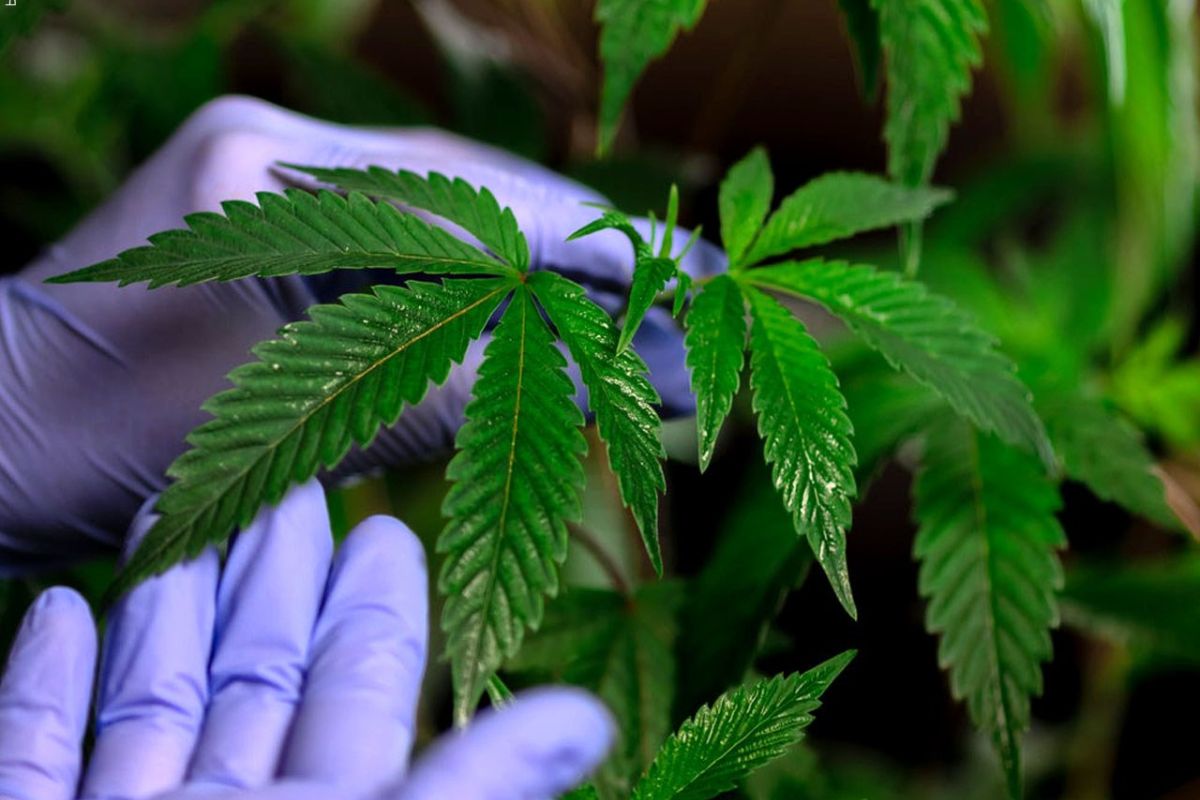AMCC Threatens Appeal in Bid: The Alabama Medical Cannabis Commission (AMCC) finds itself embroiled in a legal battle as it faces the possibility of depositions. In a strategic move, the AMCC has filed an emergency motion to halt the depositions, citing potential harm to their mission.
The complex legal landscape surrounding the AMCC’s counterarguments and their looming appeal. By exploring the implications for medical cannabis licensing in Alabama, this piece seeks to provide a detailed and analytical analysis for a discerning audience seeking mastery in this subject matter.
Key Takeaways
- AMCC is involved in a legal battle and facing allegations of favoritism and unfair practices in the licensing process.
- The plaintiffs in the case are medical cannabis companies that were denied licenses.
- AMCC has filed an emergency motion to halt expedited depositions, aiming to protect their interests and ensure a fair legal process.
- The ongoing legal battle and attempts to halt depositions may cause delays in licensing and erode public trust in Alabama’s medical cannabis program.
Who regulates cannabis in Alabama?
Down here in Alabama, it’s the Department of Agriculture and Industries’ job to handle the licensing and keep an eye on cannabis cultivation. They’re the ones making sure everything’s on the up-and-up when it comes to growing.
Who got cannabis license in Alabama?
Big shoutout to Trulieve AL, Inc.; Sustainable Alabama, LLC; Wagon Trail Med-Serv, LLC; Flowerwood Medical Cannabis, LLC; and Specialty Medical Products of Alabama. I appreciate the hard work these integrated facility applicants put in during this long licensing process.
Is medical cannabis legal in Alabama?
Even though Alabama gave the nod to medical marijuana back in 2021, it’s still not up and running over two years later. The state had to figure out the rules, and the whole selection process got tangled up in disputes. The commissioners hit the brakes on the license process multiple times during this ongoing disagreement.
The Alabama Medical Cannabis Commission’s Legal Battle
Why is the Alabama Medical Cannabis Commission currently involved in a legal battle?
The AMCC finds itself embroiled in a legal dispute due to denied licenses and allegations of favoritism. This contentious situation has led to expedited depositions as ordered by Judge James Anderson.
The legal battle stems from the AMCC’s decision to deny certain applicants the opportunity to obtain licenses for medical cannabis cultivation, manufacturing, and dispensing. These denied applicants have raised concerns about the fairness and transparency of the AMCC’s selection process, alleging favoritism towards certain individuals or entities.
As a result, the AMCC is now facing legal action challenging the validity of their decision-making process. The ongoing legal battle has significant implications for the Alabama medical cannabis industry and highlights the importance of ensuring fairness and impartiality in regulatory processes.
Legal Maneuvers: AMCC Files Emergency Motion
In its latest legal maneuver, the Alabama Medical Cannabis Commission (AMCC) has filed an emergency motion to halt expedited depositions, as the commission contests Judge Anderson’s order. The AMCC is taking this step to protect its interests and ensure a fair legal process.
This emergency motion is crucial in maintaining the integrity of the case and preventing any potential violations of the Alabama Open Meetings Act. The commission firmly believes that the depositions should be halted until all legal matters have been resolved.
The AMCC’s decision to file an emergency motion demonstrates its commitment to upholding the law and ensuring a just outcome. By contesting Judge Anderson’s order, the AMCC is exercising its rights and taking the necessary steps to protect its reputation and the integrity of the medical cannabis licensing process.

ALSO READ: Alabama Medical Cannabis Commission Aims to Program Started Despite Legal Hurdles
Plaintiffs’ Allegations: Uncovering a Nefarious Scheme
The plaintiffs’ allegations of a nefarious scheme are regularly examined in order to uncover any potential irregularities within the Alabama Medical Cannabis Commission (AMCC). These allegations suggest that there is a deliberate scheme within the AMCC that favors certain companies and discriminates against others.
The plaintiffs, composed of medical cannabis companies that were denied licenses, believe that key figures within the AMCC, such as executive director John McMillan and chairman Rex Vaughn, are involved in this scheme.
The purpose of the upcoming depositions is to gather evidence and testimonies that could shed light on these alleged irregularities. By deposing McMillan and Vaughn, the plaintiffs hope to uncover any evidence of bias, corruption, or unfair practices that may have influenced the license approval process.
This examination is crucial in ensuring transparency, fairness, and the integrity of the AMCC’s decision-making process.
Legal Landscape: AMCC’s Counterarguments and Appeal
Despite the AMCC’s dissatisfaction with the court’s decision, they are now preparing to appeal and present their counterarguments against the depositions. The AMCC contends that the plaintiffs should have followed proper legal protocol by raising formal concerns before seeking depositions. They emphasize the necessity of a formal complaint regarding Open Meetings Act violations prior to allowing depositions and discovery.
In their appeal, the AMCC will argue that the court’s decision disregards the importance of adhering to established legal procedures and sets a dangerous precedent for future cases. They will further assert that allowing depositions without a formal complaint undermines the integrity of the legal system and hampers the ability to present a fair and just defense.
The AMCC’s appeal seeks to rectify what they perceive as an unjust and flawed decision, safeguarding the principles of due process and legal fairness.
- The AMCC highlights the potential implications of the court’s decision on future legal proceedings.
- They argue that the court’s ruling undermines the importance of adhering to established legal procedures.
- The AMCC asserts that the decision sets a dangerous precedent that compromises the integrity of the legal system.
- They emphasize the need to uphold the principles of due process and fairness in the pursuit of justice.
- The AMCC contends that depositions without a formal complaint hinder the ability to present a fair and just defense.

Ongoing Complexity: Implications for Medical Cannabis Licensing in Alabama
The ongoing complexity surrounding the legal battle between the AMCC and the allegations of favoritism has significant implications for the future of medical cannabis licensing in Alabama. The AMCC’s attempts to halt depositions and their potential appeal to the Court of Civil Appeals demonstrate the contentious nature of the proceedings and the deep-seated conflicts within the industry. These actions not only prolong the legal battle but also cast doubt on the integrity and transparency of the licensing process.
To better understand the implications of this ongoing complexity, let us examine a table that highlights the potential consequences for medical cannabis licensing in Alabama:
| Implications | Analysis | Emotional Impact |
|---|---|---|
| Delay in licensing | The legal battle and the AMCC’s attempts to halt depositions could result in further delays in granting licenses, preventing patients from accessing medical cannabis. | Frustration and disappointment among patients and advocates who are eagerly awaiting the availability of medical cannabis. |
| Loss of trust | The allegations of favoritism and the AMCC’s actions erode public trust in the fairness and impartiality of the licensing process. | Anger and disillusionment among stakeholders who expected a transparent and equitable process. |
| Stifled industry growth | The ongoing legal battle creates uncertainty and hampers the growth of the medical cannabis industry in Alabama. | Disappointment and frustration among businesses and investors who had hoped to capitalize on the emerging market. |
| Reputation damage | The controversy surrounding the licensing process tarnishes the reputation of Alabama’s medical cannabis program both within and outside the state. | Concern and skepticism among potential patients, healthcare providers, and industry professionals who may question the legitimacy of the program. |
The ongoing complexity of the legal battle and the allegations of favoritism have far-reaching implications for medical cannabis licensing in Alabama. It is crucial for the AMCC to address these issues promptly and transparently to restore trust and ensure the successful implementation of a fair and effective medical cannabis program. Failure to do so may have long-lasting consequences for patients, businesses, and the reputation of Alabama’s medical cannabis industry.
Conclusion Of AMCC Threatens Appeal in Bid
In conclusion, the Alabama Medical Cannabis Commission’s legal battle continues as they threaten to appeal in an effort to stop depositions. The ongoing complexity of this case has significant implications for medical cannabis licensing in Alabama.
The AMCC’s legal maneuvers and counterarguments against plaintiffs’ allegations reveal a contentious struggle for control over the state’s medical cannabis program. The outcome of this legal battle will have far-reaching consequences for the future of medical cannabis in Alabama.

